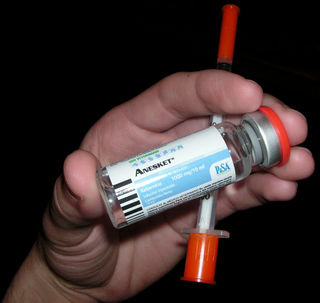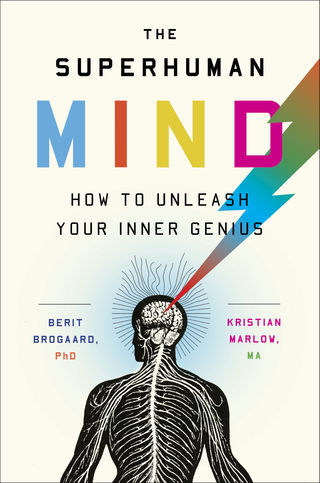Depression
Ketamine: The New Wonder Drug for Depression
How can an anesthetic alleviate depression?
Posted March 21, 2017

It's one of those counterintuitive facts in medicine: you give a kid who is hyperactive and can't sit still in class speed (the central-nervous stimulant Adderall), and they promptly stay in their seat and start paying attention. Or you give a seriously depressed person an anesthetic that is used to put people and horses down for surgery and their depression is gone within an hour or two.
The anesthetic that has been found to temporarily alleviate depression is a drug called ketamine. It is also known as Special K when sold as a street drug. It has not been FDA-approved for the treatment of depression but more and more doctors prescribe it off-label to seriously depressed patients. It is estimated that up to 3,000 seriously depressed people have been successfully treated with ketamine. But how can an anesthetic that typically is used to put people to sleep cure depression?
The answer to this question is still a mystery. But there is some evidence in favor of a mechanism of action that is quite unlike that underlying typical antidepressants. One theory is that at small doses ketamine doesn't work as an aesthetic by completely antagonizing the NMDA receptor like it does in surgery. Instead it causes euphoria and increased energy and motivation by increasing the stimulant brain chemical glutamate via the AMPA receptor. A related theory is that the drug blocks the brain's main depressant neurochemical GABA, which allows for sustained glutamate release.
One reason the glutamate theories have gained traction is that people who don't respond to standard antidepressants such as SSRIs, which increase serotonin, and the newer antidepressants SNRIs, which increase the brain's levels of serotonin, norepinephrine and (indirectly) dopamine, seem to respond to ketamine.
However, like cocaine, ketamine also increases the brain's levels of serotonin, norepinephrine and dopamine. It just does it in a different and much faster way than your standard antidepressants. At low doses ketamine may simply work like a kind of long-lasting "cocaine."
Ketamine could be our first real wonder drug for the treatment of serious depression. Unlike the standard antidepressants, it works almost immediately, and it only needs to be given to patients every two to three weeks. However, getting some recreational version of the drug off the street in an attempt to self-medicate is a bad idea. Not only is it illegal, it also could potentially cause serious mental illness if not death. At moderate doses ketamine can cause schizophrenia-like symptoms. It also increases blood pressure and heart beat. When administered wisely by medical professionals, patients are carefully monitored for these side-effects.
Berit "Brit" Brogaard is a co-author of The Superhuman Mind and the author of On Romantic Love.



